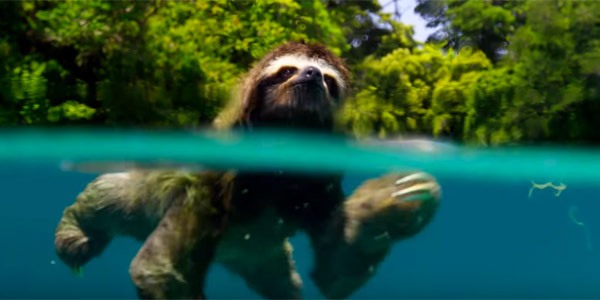Planet Earth II – The revenge of the surf.
06/11/2016 2 Comments
It’s impossible not to be impressed by Sir David Attenborough hot-air ballooning two miles above the planet to open the second series of Planet Earth. I fell in love with the first series, from the Sigur Ros anthem to the outstanding aerial photography (the vast herds filmed from far above the surface using the latest stabilised camera technology of the time but mounted on a helicopter). This new one starts in impressive fashion with barnstorming music and a very effective juxtaposition of two mating island-dwellers: the lethargic swimming and tree-climbing prowess of the pygmy sloth with the ferocious and bloody battles of the dragons of Komodo.
[Spoilers :)] We then move via a never stopping camera past the lemurs of Madagascar to the Galapagon Islands of TERROR. My heart has only just calmed down. I was enjoying the beautiful shots of the turtles and the marine iguanas snorting salt water from their nostrils when all of a sudden the fastest knot of racer snakes appears from nowhere. These constrictors appear to defy the laws of physics as they burst across the gravelly sand to make meals of equally fast hatchling iguana. Incredible filming and timing make this the first outstanding scene of the series.
But the truly terrible scenes are the ones where island species are finding it impossible to adapt to sudden changes brought on by human intervention (for example the ant invaders destroying the red crab natives of Christmas Island). Attenborough reminds us that isolation for islanders means new challenges make it much more likely for these species to become extinct.
The programme finishes with epic vistas of an almost untouched (by humans) Antarctic volcanic island and the one and a half million penguins that live, thrive and survive upon it.
A brilliant first episode, that includes the obligatory video diary at the end, which documents the “penguin paradise” including the ethical dilemma of leaving the penguins to tackle the southern battering ocean without help despite the pain of seeing the bloodied wounded hobble past them
***** (especially as the trailer for next week’s episode had the strains of Hoppibolla playing over it).



